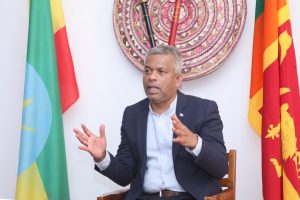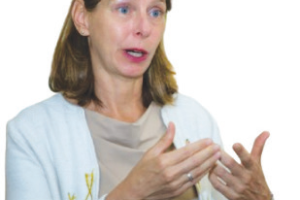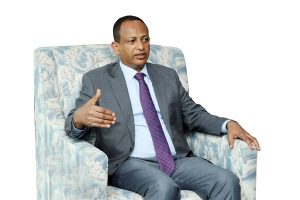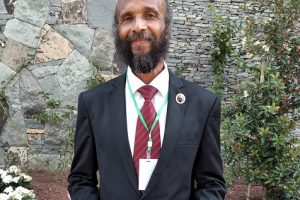
Due to various obstacles, Africans have not yet been able to strengthen their unity to ensure comprehensive development by utilizing their vast resources. Instead, they seek export markets for their raw materials.
One hindrance is the lack of willingness to develop infrastructure that connects borders and the failure to open borders for the free movement of people and goods. Aviation could facilitate easy connectivity, but most African skies are uncompetitive. To address these challenges, the African Union established the African Civil Aviation Commission (AFCAC) on January 17, 1969, in Addis Ababa, Ethiopia, during a conference convened by the International Civil Aviation Organization (ICAO) and the Organization of African Unity (OAU), now the African Union (AU).
AFCAC is a specialized agency of the African Union (AU) responsible for all civil aviation matters on the African continent, including the implementation of the Yamassoukro Decision and the Single African Air Transport Market (SAATM).
The establishment of the Single African Air Transport Market (SAATM) is a clear demonstration of the support that the AU Heads of State and the African Union Commission have given and will continue to give to the aviation industry in Africa, especially concerning the full implementation of the YD and the establishment of a safe, secure, and affordable air transport market.
The AUC supports AFCAC as the Executive Agency of YD, especially at a time when the Agency enters the critical stages of making the SAATM a reality. The participants believe that the full liberalization of air transport services in Africa and the operationalization of SAATM with all its pillars are important critical enablers of the Continental Free Trade Area and the socio-economic transformation of Africa.
The African Union (AU) is excited to offer increased support as the Agency progresses through the crucial stages of reforming the air transport industry on the continent. The goal is to eliminate the remaining obstacles that are hindering Africa from reaping the rewards of a safe, secure, and sustainable air transport sector. The complete liberalization of air transport services in Africa, along with the implementation of the Single African Air Transport Market (SAATM) and all its components are viewed as key drivers of the Continental Free Trade Area and the socio-economic development of Africa.
Today’s guest is Adefunke Adeyemi, the current Secretary-General of the African Civil Aviation Commission. During her time with The Ethiopian Herald, Adeyemi has elaborated on the tasks she has accomplished over the past two years, particularly in connecting African skies. She has also discussed a variety of issues related to the Yamassoukro Declaration, as well as the challenges and solutions to address them in the remaining years of her term. Enjoy the read!
What role do African skies play in the economic development of the continent?
We serve as the specialized agency of the African Union, overseeing all civil aviation matters across Africa. The significance of interconnectivity within Africa cannot be overstated, particularly in the realm of air travel. This is due to the vastness of the continent, which is larger than it may appear.
Unlike other regions, Africa lacks comprehensive transportation alternatives such as extensive railways or highways. Consequently, aviation emerges as a crucial short- to medium-term solution for facilitating movement across the continent. However, several challenges must be addressed. Foremost among these is the necessity for an appropriate regulatory framework.
African nations must be willing to open their borders to one another, fostering an environment where citizens can travel freely. This includes ensuring market access for airline operations and simplifying visa processes. For instance, as an African citizen, I am required to obtain visas for 25 different countries within Africa. This raises the question: how can we expect to enhance mobility, trade, and the movement of goods and services across our continent? How can we effectively support the African Continental Free Trade Area under such restrictive policies?
Another critical issue is affordability. It is essential to create a regulatory framework and operational environment that makes air travel accessible to a larger segment of the African population, rather than just a privileged few. To achieve this, regulatory frameworks at the continental, regional economic community and national levels must work in harmony. This is a key focus of our efforts, as we collaborate with various states, regional economic communities, and stakeholders to advance this agenda. In the past two years since I assumed this role, we have made notable progress.
Nearly 100 new airline routes have been established across Africa, contributing to a reduction in airfare costs. We are beginning to see progress, but we need more and faster. We need the support of decision-makers to sustain attention on this area. We cannot have a flagship project like the Single African Air Transport Market without supporting the Single African Trade Market and the African passport for free movement of Africans. These three go hand-in-hand, so we must work together to ensure they come to fruition.
What is the significance of the Yamoussoukro Decision in liberalizing African skies?
Air connectivity holds a significant amount of economic potential and opportunity. The better connected a country is by air, the greater its ability to unlock the economic and social benefits that air transport can deliver. Currently, air connectivity in Africa is primarily focused on international routes, especially from Europe and the Middle East, while intra-Africa connectivity is much more limited.
Air connectivity encompasses various dimensions, including the number of routes, the range of destinations served, the frequency of services, and the availability of seats to and from a country.
Air service liberalization would result in substantial benefits for passengers, such as fare savings, more direct routes, increased route frequencies resulting in greater convenience and time savings.
The impact of enhanced connectivity extends beyond passengers. The increased air service levels will stimulate employment in the aviation industry to handle passengers and their baggage, as well as to operate, service, and maintain aircraft. Liberalization would also be expected to stimulate trade and tourism between countries, generating an estimated US$1.3 billion in additional spending.
Most significantly, increased air services could facilitate many other sectors of the economy by supporting increased trade, attracting new businesses to the region, encouraging investment, and enhancing productivity and competitiveness. Industries and activities that would otherwise not exist in a region could be attracted by improved air transport connectivity.
The goal of the Yamoussoukro Decision is to strengthen safety and security oversight on the continent and promote a climate of cooperation among African carriers through partnerships, mergers, and consortiums. Improved airline brands will be able to compete favorably with stronger states or blocks of states from outside the continent. The full implementation of the Yamoussoukro Decision will guarantee the creation of a larger market for African carriers and improved access to capital. In addition, airlines and governments can optimize existing capacities.
African Open Skies create many more opportunities and economies of scale. When African airlines are empowered by this realization, economic development on the continent would be accelerated, thousands of more jobs would be created, and the movement of people within the continent will be enhanced.
Africa is now implementing Africa continental free trade area. How would SAATM support this effort?
The implementation of the Single African Air Transport Market will enable the acceleration of the Africa Continental Free Trade Area as air transport service which will facilitate trading in goods, people and services to move faster and more efficiently across the continent of Africa.
The Single Africa Air Transport Market, the Africa Continental Free Trade Area and the Free Movement Protocol of people and goods look out how to connect and integrate Africa better. We fully support the theme of this AU heads of state summit of accelerating the African free trade area and we believe our initiative to accelerate the single Africa air transport market can only support and accelerate this issue.
What challenges have you faced in terms of doing your job over the last two years?
The challenges to the implementation of SAATM are complex and varied. The main challenge is ensuring practical implementation, rather than just declaration. In this regard, there is a lack of political will and commitment by some African states.
The second important point is proper coordination of partners to work together. In short, there is a lack of harmonization of air transport policies and regulations among African states, leading to inconsistencies and difficulties for airlines to operate across borders.
The third point is to harmonize the approach and reduce fragmentation, as well as the tendency of protectionism and nationalistic sentiment rather than continental. There is a lack of adequate infrastructure, particularly in secondary airports, making it difficult for airlines to operate profitably. There is also a need for increased investment in human resources development, technology, and innovation to improve efficiency and competitiveness. This is crucial for the implementation of both the single Africa trade market and the continental free trade area.
We can educate our stakeholders, both at the governmental and organizational levels, on the importance of aviation as a catalyst for economic and social development. This has been demonstrated in other parts of the world and proven successful, so there is no need for further testing or studies.
We have conducted studies to showcase the benefits of aviation, but the key issue is raising awareness about its crucial role in economic development. Aviation serves as a significant driver of economic growth.
Another challenge we encounter at times is protectionism driven by the fear of competition, which can hinder the growth of our continent and the aviation sector. It is essential to address these barriers to ensure a competitive environment.
Non-physical barriers, such as visa restrictions and high operational costs, also pose challenges. These barriers prevent us from expanding and providing essential air transport services to the 1.5 billion Africans who rely on them. Air transport should be seen as a form of mass transportation, as it is in countries like China and India where people fly to work. Ultimately, we aim to reach a point where air travel is accessible and widely used in Africa.
What can Africans expect from your office in the short term?
Yes, in the next three years, we will continue to push for increasing connectivity across Africa by opening new routes and working with airlines. We will also engage with governments and regional economic communities to harmonize the regulatory environment and standardize rules to make it easier for people to enter the market. Africans can expect ongoing sensitization, advocacy, and capacity building for states in these areas. We will also continue to promote the message that air transport supports economic development and that Africa should benefit from it.
Thank you very much.
It is my pleasure.
BY GIRMACHEW GASHAW
THE ETHIOPIAN HERALD SATURDAY 8 MARCH 2025




